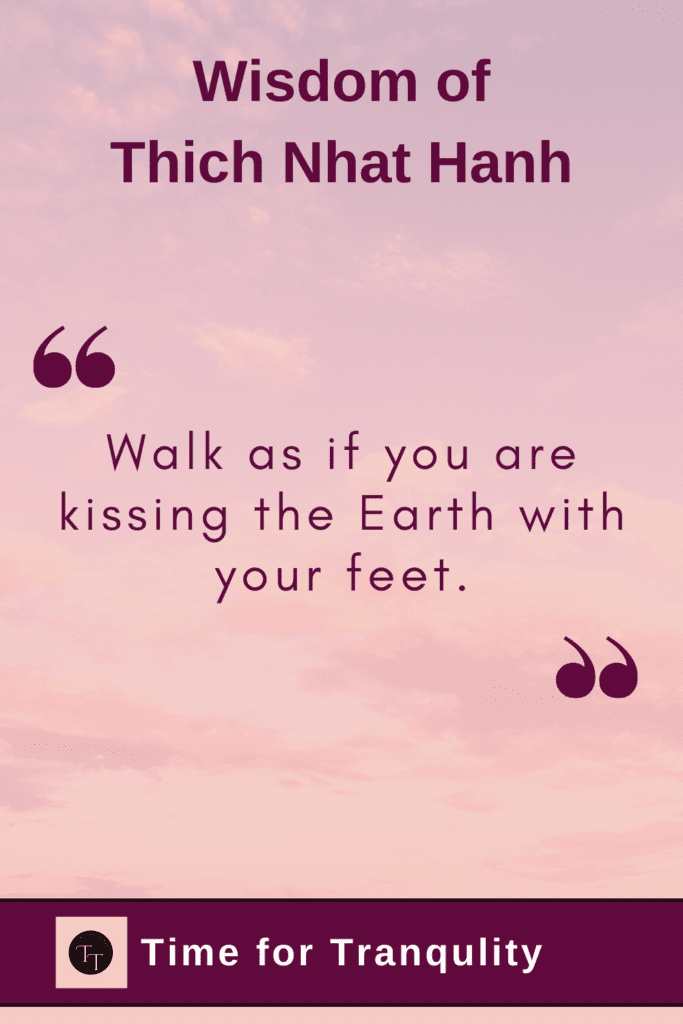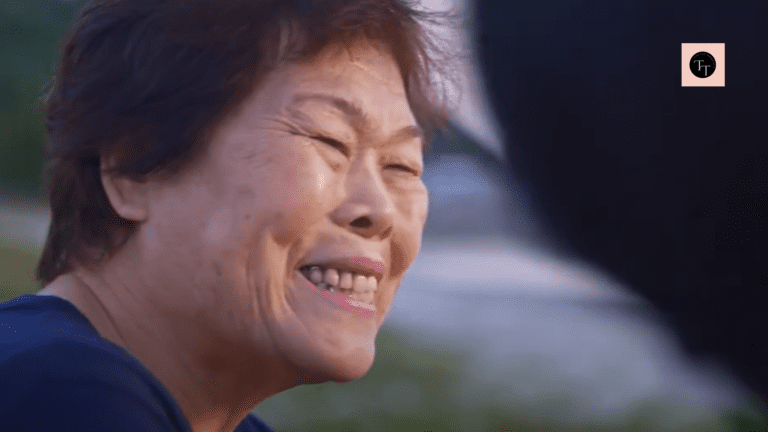Master Mindfulness for Anger Management & Tranquility in Your Senior Years!
Is anger your worst enemy? You, almost always, have regret after an angry burst. So, what can you do? Have you considered mindfulness for anger management?
Anger is a natural emotion and it only gets worse as you grow older and more and more challenges come your way. It can show up unexpectedly—whether in a frustrating conversation, a moment of loneliness, or even when thinking about the future. You may wonder why, after all these years, anger seems harder to manage.
Anger may be a natural emotion, but it hurts you the most.
As the Buddha wisely said, “Holding on to anger is like grasping a hot coal with the intent of throwing it at someone else; you are the one who gets burned.”
While anger is normal, letting it control you can lead to stress, tension, and emotional pain. That’s where using mindfulness for anger control comes in.
Mindfulness is an ancient practice that helps you observe your emotions, including anger, without getting swept away by them. It’s not about ignoring or pushing anger aside—it’s about noticing it, accepting it, and responding in a way that feels calmer and more in control.
In this article, you’ll discover how employing the benefit of mindfulness for anger mitigation can bring more peace and tranquility into your daily life.
Understanding Anger as an Emotion
What is Anger?
Anger is a natural part of life. It often shows up when something feels wrong, unfair, or out of control. You may have noticed that anger arises in situations where other emotions, like fear or sadness, are also present.
Ancient teachings, especially in Buddhism, see anger as a fleeting state—something that comes and goes.
The Dalai Lama once said, “When reason ends, then anger begins. Therefore, anger is a sign of weakness.”
Mindfulness for anger helps you recognize this emotion without letting it take over.
Why Do You Feel Anger?
As you’ve gotten older, you might feel more frustrated or anxious about things that never bothered you before. Maybe it’s concerns about your health, worries about the future, or feelings of loneliness.
Anger can often mask those deeper emotions. When you pause and take a closer look, you may find that underneath the anger is sadness, fear, or uncertainty.
Only by understanding the true cause of anger, can you begin to work with your emotions instead of against them.
How Anger Affects You
When anger isn’t managed, it can affect your health. Research from Harvard Medical School suggests that intense, unresolved anger can lead to cardiovascular problems and increase stress hormones like cortisol.
Anger keeps you from feeling peaceful and present in the moment. That’s where mindfulness can help. By practicing mindfulness for anger, you can observe your anger without being swept away by it, creating space for calm responses instead of emotional reactions.
Actionable Tip:
The next time you feel anger rising, pause for a moment, take a few deep breaths, and maybe recite a mantra, such as “Om Shanti!” or “I am a peaceful soul.”
Say to yourself, “I feel angry, but I will stay calm.” Acknowledging your anger calmly can give you the space you need to respond more healthily and thoughtfully.
What is Mindfulness?
Simple Definition:
Mindfulness is about being fully present in whatever you’re doing, without letting your mind wander into the past or future. It’s about noticing your thoughts and feelings as they come up, without judging or reacting to them.
You might have heard about mindfulness through meditation practices, but it can also be as simple as paying full attention to your breath or how your feet feel on the ground.

Historical Roots in Spiritual Practices:
Mindfulness is deeply rooted in ancient spiritual teachings like Buddhism and Hinduism. It has been used, for thousands of years, to connect with the present moment. These traditions see mindfulness as a path to inner peace and self-awareness.
Today, you can use these same practices to bring more calm and clarity into your own life, especially when dealing with strong emotions like anger.
The Benefits of Mindfulness for Seniors:
Mindfulness is especially helpful as you get older. It can reduce stress, quiet your mind, and help you feel more connected to the present.
If you’ve found yourself worrying more as the years go by, mindfulness can help you break that cycle. By focusing on the moment you’re in, you let go of anxiety about the future and stop dwelling on the past.
Actionable Tip:
Try practicing mindfulness with your breath. Sit comfortably, close your eyes, and notice how the air feels as it moves in and out of your nostrils. Gently bring back your attention to your breath, whenever your mind wanders.
Doing this, even for just a few minutes can help you develop more awareness and calm over time. As you get better, extend the period to 15-30 minutes.
Fast-Acting Techniques to Use Mindfulness for Anger Management
- Observe and Accept the Emotion:
The next time you feel anger rising, instead of reacting right away, pause. Take a moment to observe what’s happening inside you. Notice how your body feels—maybe your heart is racing or your shoulders are tense.
By acknowledging the emotion of anger, without judgment, you’re giving yourself space to respond rather than react.
Remember, anger itself isn’t “good or bad.” How you choose to act on it can make a big difference. Mindfulness for anger is about observing the feeling without judgment.
2. Breathing Exercises for Calming the Mind:
When anger flares up, your breath can be your greatest tool. Taking slow, deep breaths helps calm both your mind and body.
Try this simple technique: Inhale deeply for a count of four, hold your breath for four, and exhale for four. Repeat this a few times until you feel your body start to relax.
This gives you time to cool down and approach the situation with a clearer mind.
3. Loving-Kindness Meditation:
One powerful way to soften anger is through a practice called loving-kindness meditation. It’s a meditation technique, from Buddhism, where you focus on sending kind thoughts to yourself and others.
Start by quietly saying to yourself, “May I be happy. May I be peaceful. May I be free from suffering.” Then, extend those thoughts to others, even the person you may be upset with. This helps shift your emotional state from anger to compassion.
Actionable Tip:
When you notice anger, try the breathing exercise first to calm your mind. Then, if you’re ready, practice a few moments of loving-kindness meditation to soften your emotions and cultivate compassion.
Overcoming Obstacles to Practicing Mindfulness
Common Challenges:
Starting a mindfulness practice can feel overwhelming, especially if you’re new to it. You might sit down to meditate, and your mind starts racing. You may get frustrated that you can not control your mind.
It’s completely normal to face these challenges. Remember, the purpose of mindfulness is not to empty your mind of thoughts and emotions. The purpose is to observe your thoughts and emotions, without judgment and attachment.
In mindfulness practice, you need to be patient with yourself and keep coming back to the present moment, over and over again.
Practical Solutions:
If you find it hard to focus during meditation, start with just a few minutes a day. You can gradually build up as it becomes easier.
Try incorporating mindfulness into your routine in simple ways—like paying attention to your breath while waiting in line or noticing the aroma and warmth of your morning coffee. The key is to take small steps and not expect immediate changes.
When to Seek Additional Help:
Sometimes, anger can feel too overwhelming to manage on your own, even with mindfulness practices. If you feel stuck or unable to control your emotions, don’t hesitate to reach out for help.
Talking to a trusted friend or counselor, joining a meditation group, or finding an online mindfulness community can give you the extra tools and encouragement to keep moving forward.
Actionable Tip:
Are you finding mindfulness practice too difficult? Don’t be too hard on yourself. It is a phase every beginner goes through. Start small. Do not even set any goals. Just sit.
In the Zazen meditation technique, monks just sit for hours, doing nothing. It takes time but the mind settles by itself.
“Don’t do anything, just sit. And this sitting is meditation.” – OSHO
In Conclusion
Learning to use mindfulness for anger management isn’t something that happens overnight. It is not easy to master in the beginning either. It’s a long journey of self-awareness and spiritual growth.
However, by bringing mindfulness into your daily life, you can become aware when anger arises, giving yourself the space to respond calmly rather than reacting impulsively.
Remember, you may not get rid of the emotion of anger, but you will learn to understand and work with it. Each time you pause, breathe, and observe your feelings, you will be another step closer to inner peace.
As the Taoist philosopher Lao Tzu said, “He who conquers others is strong; he who conquers himself is mighty.” Even the smallest practices, like focusing on your breath or reflecting on gratitude, can make a big difference over time.






